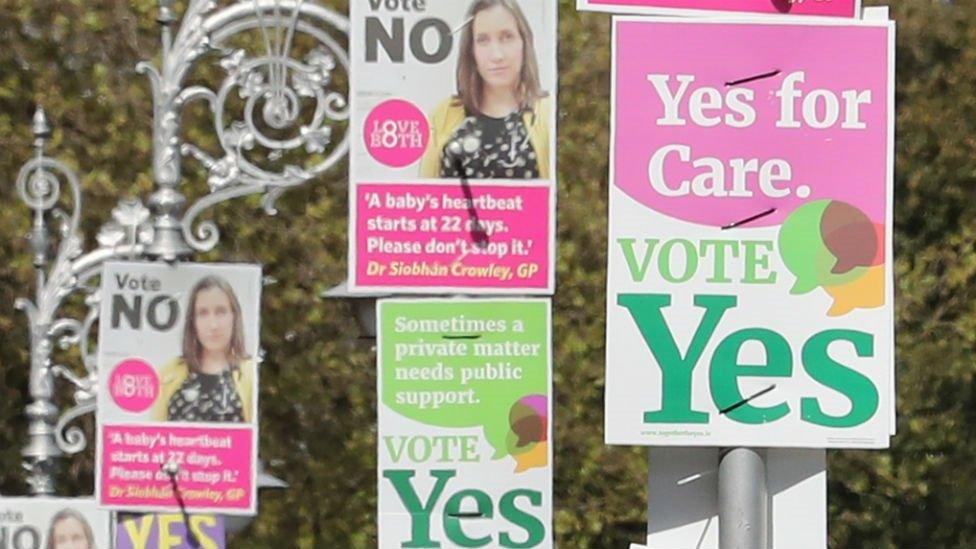Ireland abortion referendum: What is the law?
- Published

On Friday 25 May, people in the Republic of Ireland voted on whether they want to make changes to the country's strict abortion laws, upheld in the Eighth Amendment of the Irish constitution.
So where does the law currently stand?
Since 2013, terminations have been allowed in Ireland but only when the life of the mother is at risk, including from suicide. The maximum penalty for accessing an illegal abortion is 14 years in prison.
In 2016, the Irish Department of Health said there were 25 legal abortions carried out in Ireland.
In the same year, 3,265 women travelled from Ireland to the UK for a termination.
After independence, Ireland retained many UK laws, one of which was the Offences Against the Person Act 1861 which criminalised abortion.
However, in the early 1980s, following legal cases in other jurisdictions allowing the introduction of less restrictive abortion laws, some people became concerned that something similar could happen in Ireland.
The background and potential outcomes to the Republic of Ireland's abortion referendum
In 1983, after a referendum, an eighth amendment was added to the country's constitution known as Article 40.3.3.
In it, the state acknowledged "the right to life of the unborn and, with due regard to the equal right to life of the mother, guarantees in its laws to respect, and, as far as practicable, by its laws to defend and vindicate that right".
Travelling for termination
After a further referendum in 1992, two other changes were made to the constitution in relation to women seeking to access terminations.
The Thirteenth Amendment said women were free to travel to other countries to access abortion services.
The Fourteenth Amendment stated that the constitution would not prevent people accessing information relating to "services lawfully available in another state".
In 2013, the law was changed when the D谩il (Irish parliament) voted to allow abortions under limited circumstances.
The Protection of Life During Pregnancy Act allowed terminations to be carried out where there is a threat to the life of the mother. They would also be allowed where there is medical consensus that the expectant mother will take her own life over her pregnancy.
Referendum
In 2017, the Citizens' Assembly, a body set up advise the Irish government on constitutional change, voted to replace or amend the part of Ireland's Constitution which strictly limits the availability of abortion.
So on 25 May, 2018, the Irish people were asked if they wanted to remove the Eighth Amendment and allow politicians to set the country's abortion laws in the future.
The wording on the ballot paper read: "Provision may be made by law for the regulation of termination of pregnancies.
In March, Health Minister Simon Harris outlined what would be in the if the people voted to repeal the Eighth Amendment.
If passed, women could access a termination within the first 12 weeks of pregnancy.
However, beyond 12 weeks, abortions would only be permitted where there is a risk to a woman's life or of serious harm to the physical or mental health of a woman, up until the 24th week of pregnancy.
Terminations would also be permitted in cases of fatal foetal abnormality.